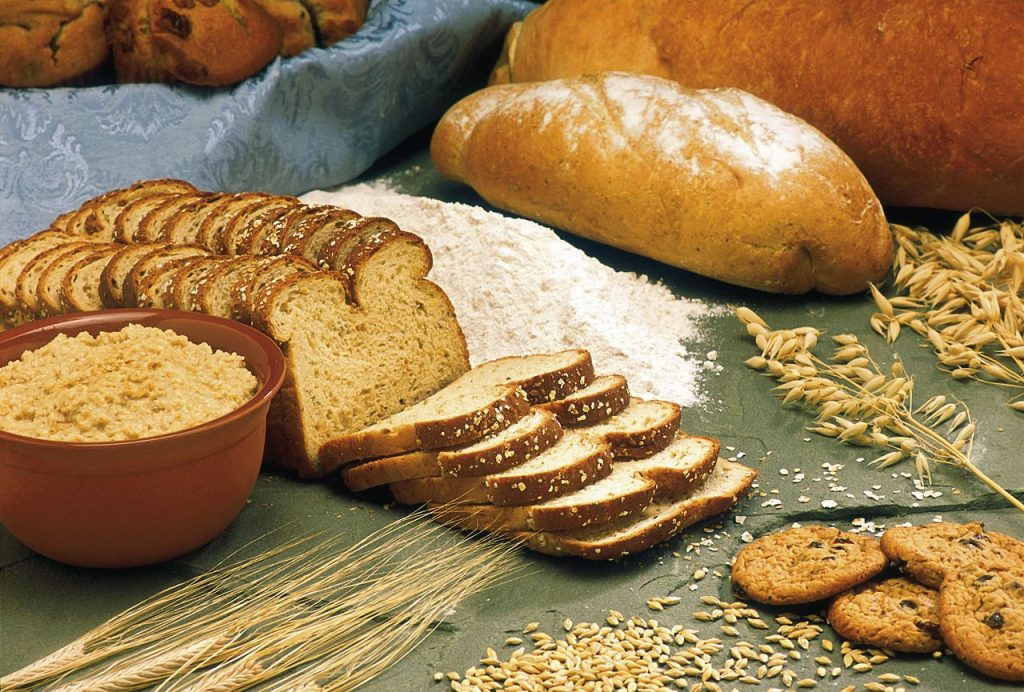Today there are a variety of diets in the world that help people’s bodies be healthier, more powerful, or more attractive. Not only sports players or fashion models, but also ordinary people follow those diets for their own purposes. Among those numerous diet methods, the gluten-free diet is one of the most popular for achieving overall good health. However, very few people know who pioneered gluten-free diets or how he did it.
It was almost a hundred years ago. Many people in a variety of countries were suffering from celiac disease, which is caused by gluten in one’s diet. However, the cause of the disease had not discovered yet, at that time. Therefore, patients with the disease had no choice but to follow the latest trend: dietary cures such as a banana diet or an oyster diet.1 Although those diets did not suggest that patients eliminate gluten from their meals, the diets were successful, because both bananas and oysters don’t have gluten, and they do have rich nutrients that is good for overall health. Bananas are still considered to be excellent fruits because they contain a lot of nutrients. And oysters do too.
First, oysters are high in zinc. Zinc plays an important role in various functions of the human body, and not having zinc can cause problems. For example, zinc is important for the immune system. It affects many kinds of cells, such as natural killer cells, which eliminate cancer cells and viral-infected cells. Zinc helps the cells to develop, which means that it contributes toward preventing people from getting sick. When the amount of zinc in the body is not enough, it can even cause death of cells.2 In addition, lack of zinc can cause growth retardation. In 1958, German professor Lothar Rink visited Shiraz, Iran and observed people who had dwarfism. The patients also had other symptoms, such as rough and dry skin, mental lethargy, and anemia. Rink and other researchers found their deficiency of iron. However, lacking iron could not explain their growth retardation. Then, they concluded that it could be because of a zinc deficiency. This was because the patients mainly ate breads made from whole wheat flour, which contained phytate, the element that prevents zinc from being absorbed.3 It is not only Iranians but also people all around the world who need to take more zinc. Oysters are one of the richest foods in this essential element, containing more than 10 mg of zinc per 100 g compared to salmon, chicken, or shrimp, which contain only 1-2 mg of zinc.4

Second, oysters can be a great source of protein. In China, they have been so valued as a protein source that sports beverages are made from them. One of the reasons is because the protein in oysters is easily absorbed in the human body. Most sports beverages sold in the current market are electrolytic. However, those beverages are difficult for the human body to absorb.5 Another benefit from oysters is that they have other components that are helpful for those who engage in sports. For example, oysters contain sugar and taurine. Sugar, like protein, is used in the body to provide energy quickly and effectively; taurine is good for relieving fatigue immediately after sports activity. Other effective components include bioactive peptide, glycogen, and saline ions.6 These components are necessary for athletes, which means that perfect sports beverages can be made from oysters. Also, at the time when oyster diets were trending, they were also providing an important energy source.
Although banana diets and oyster diets were thought to be the solutions for celiac disease, they were not reliable ways to prevent symptoms. Then, Willem Dicke, a Dutch pediatrician, started research in earnest. It took a lot of time and effort. After making examinations again and again, however, he found a clue, finally. Dicke found that many of the patients who eliminated wheat products from their diets felt better. He conducted further studies to make sure that wheat had something to do with celiac disease. In the end, he concluded that the cause of this disease is the existence of gluten.7 Since people did not have any knowledge of gluten at that time, it became a remarkable discovery. Even now, many people don’t know exactly what gluten is and how it affects celiac disease and people’s overall health.

Gluten is a protein in various foods. It helps dough to hold its shape or expand. It is contained in many of the foods we eat daily, such as breads, pasta, cereal, cakes, and cookies. This is because the primary source of gluten is wheat. Other sources of gluten include rye, barley, and European spelt.8 Although about 80 percent of wheat gluten is used in the baking industry in America, there are a lot of other gluten-containing foods, such as french fries or soups. Most cereals contain gluten; however, oats are still under investigation. A lot of researchers have conducted experiments with oats, but they have not yet been able to get definite answers. Further studies are needed to see whether oats are a gluten-containing cereal or not.9
Gluten is basically made up of two different kinds of protein components. One is gliadin and the other is glutenin, and gliadin is known to be harmful if it is not broken down in the body.10 The patients of celiac disease are not able to break down gliadin in their organs because of a reaction in the immune system. First, when taking gluten, bodies build up the immune system, which is mediated by an antibody called lgA. LgA attacks gastric mucosa and transglutaminase, the enzyme that dissolves gliadin. Then gliadin remains unbroken and causes various symptoms, such as skin rash, stomach pain, oral ulcers, and so on.11 The tolerable amount of gluten depends on each patient.12 Some study patients show comparatively slight symptoms, but others react more seriously, some so severe that it becomes a matter of life or death. Paul J. Ciclitira, a professor of gastroenterology, and other authors say in their book that “The importance of following a gluten-free diet by patients with celiac disease is protection against the increased risk of developing gastrointestinal malignancy, other autoimmune disorders, including diabetes mellitus and osteoporosis.”13 The recent survey by the National Board of Health, the National Institute of Diabetes and Digestive and Kidney Diseases reported that a third of adults in America feel negative effects after taking gluten, and 1 in 141 people there have celiac disease.14

After Dicke discovered the cause of celiac disease, he kept studying and then announced his findings. According to David Yan and Peter Holt in their article, Dicke made five conclusions: First, when patients are on a gluten-free diet, symptoms such as vomiting and anorexia disappear and the development of young patients’ bodies is encouraged. Second, patients have diarrhea when they eat wheat or rye foods. Third, patients have diarrhea when wheat flour is used in foods instead of rice or corn flour or potatoes. Fourth, when patients have wheat, the amount of fat in the feces increases. Fifth, wheat can cause harm but wheat starch does not.15 After Dicke announced his conclusions, many researchers began to study gluten for an improvement of medical knowledge. Therefore, his discovery of the relationship between gluten and celiac disease contributed to the knowledge that we have about it today. If he had not discovered them, people might have not known about gluten-free diets, such an effective method for making their physical conditions better.
- David Yan et. al., “Willem Dicke. Brilliant Clinical Observer and Translational Investigator. Discoverer of the Toxic Cause of Celiac Disease,” CTS: Clinical & Translational Science 2, no. 6 (2009): 446. ↵
- Lothar Rink, Zinc in Human Health (Washington, D.C.:IOS Press, 2011), 18. ↵
- Lothar Rink, Zinc in Human Health (Washington, D.C.:IOS Press, 2011), 8-9. ↵
- Lothar Rink, Zinc in Human Health (Washington, D.C.:IOS Press, 2011), 30. ↵
- Shi Hui, “The Development of Oyster Sports Beverage and Its Antifatigue Activity on Athletes After Training,” Carpathian Journal of Food Science & Technology 8, no. 1(2016): 48. ↵
- Shi Hui, “The Development of Oyster Sports Beverage and Its Antifatigue Activity on Athletes After Training,” Carpathian Journal of Food Science & Technology 8, no. 1(2016): 50. ↵
- David Yan et. al., “Willem Dicke. Brilliant Clinical Observer and Translational Investigator. Discoverer of the Toxic Cause of Celiac Disease,” CTS: Clinical & Translational Science 2, no. 6 (2009):446. ↵
- Salem Press Encyclopedia of Health, 2015, s.v. “Gluten,” by Joseph, Dewey, PhD. ↵
- United States International Trade Commission, Wheat Gluten (United States: U.S. International Trade Commission, 1998), II-5. ↵
- Salem Press Encyclopedia of Health, 2015, s.v. “Gluten,” by Joseph, Dewey, PhD. ↵
- Magill’s Medical Guide (Online Edition), 2013, s.v. “Gluten Intolerance,” by Nicole M Hoey, Pharm.D Van. ↵
- Paul J Ciclitira, et. al., “Gluten-Free Diet–What Is Toxic?,” Best Practice & Research. Clinical Gastroenterology 19, no. 3 (2005): 364. ↵
- Paul JCiclitira, et. al., “Gluten-Free Diet–What Is Toxic?,” Best Practice & Research. Clinical Gastroenterology 19, no. 3 (2005): 360. ↵
- Salem Press Encyclopedia of Health, 2015, s.v. “Gluten,” by Joseph, Dewey, PhD. ↵
- David Yan et. al., “Willem Dicke. Brilliant Clinical Observer and Translational Investigator. Discoverer of the Toxic Cause of Celiac Disease,” CTS: Clinical & Translational Science 2, no. 6 (2009): 447. ↵



49 comments
Kimberly Rivera
When I first heard about gluten-free diets I found it impossible to even try out as a lover of baking and bread it seemed quite unreasonable but thanks to your article, I have come to understand the impact it has on people with the celiac disease but I am extremely glad that there’s other delicious and vitamin filled foods such as oysters and bananas. It amazing that gluten can cause such a painful impact on someone.
Emilia Caballero Carmona
Hey Honoka, I really liked your article because I have heard about gluten-free diets, but I never knew what they consisted of or why people needed to follow the diet. It is so interesting to see how every human body reacts differently to foods and William Dicke did an amazing discovery about this diet. I think his discovery helped millions of people then and it for sure helps a lot of people now too because Celiac disease continues to exist, and the only way patients feel better is by following a gluten-free diet.
Lesley Martinez
A gluten-free diet sounds very difficult when you enjoy eating pan dulce, cake, and other sweets. Nonetheless, I’m glad that other delicious foods can be consumed to help people with celiac disease, such as oysters. Thanks to Willem Dickie we can learn about this diseases that affects the human body. I was not fully aware of the importance of zinc nor that whole wheat flour could prevent zinc from being absorbed. This article is informative and raises points that, as mentioned, many people do not know the significance. Great article!
Savannah Alcazar
I found this article to be interesting. I have recently looked into my own health and thought of taking a gluten free approach. I like how you incorporated the science behind literally everything. I did not know how much gluten affects someone with celiac disease. I enjoyed all explanations. I had never heard of the banana or oyster diet… I do not think I could survive on either of those. Informative read.
Olivia Tijerina
The message is pretty appealing to the eye because diet is relevant to the eye of many.
On the other aspect diet is essential to most there for, especially if a community lacks. Especially when a third of american are having a negative effect from gluten and the culture for America still is to is to have 80 percent of our processed food contain gluten.
Pablo Medina
I’ve heard about people who go gluten free and choose not to eat it because of allergies or for dietary reasons. I personally did not see the big deal with glutten but after reading this article I found it interesting and informative on the nutritional facts about gluten and how taking it out of your diet can actually be beneficial. I enjoyed reading this article and will take it’s information into consideration next time when I eat.
Amanda Quiroz
I remember when I first learned about the gluten-free diet. I didn’t really pay attention to what it was until I read this article about what is in gluten. I was just told that you shouldn’t go on a gluten-free diet unless you actually need to. This article was pretty informative.
Josephine Tran
I often hear about diet fads that come and go through social media and internet trends. I like how informative this particular article was because sometimes it is hard to distinguish a persuasive article versus a solid informational one. I hadn’t realized the impact his type of diet can have on an individual. I hadn’t been very familiar with celiac disease before this and how big of an obstacle it plays in some individuals’ lives. I hope that more gluten free options become assimilated into society for individual’s who struggle with this.
Cassandra Sanchez
This was interesting to read because I didn’t know how the importance of this kind of diet can help a person. I never knew how bad gluten could really be for someone and how changing your diet can improve your health in more ways than one. I also never knew what celiac disease was and how big of a role gluten plays in connection to this. Now I understand how beneficial a gluten free diet is to someone who may really need it.
Octaviano Ibarra
When my weight was bad, I followed a diet similar to this called the keto diet. The diet consists of a no to low carb diet. Gluten and carbs go hand in hand being in wheat, pastas, bread, etc. Along with no to low carbs for this diet exercise was also key to losing weight. By following this diet, I lost 50 pounds in 3-4 months and I must admit taking on this whole diet change was definitely a challenge at first but once I stuck with it I began to easily lose my weight. Another idea that came to mind was if there was a possible alternative to having Zinc amounts being injected to cancer patients or Zinc supplements being taken by an early stage cancer patient